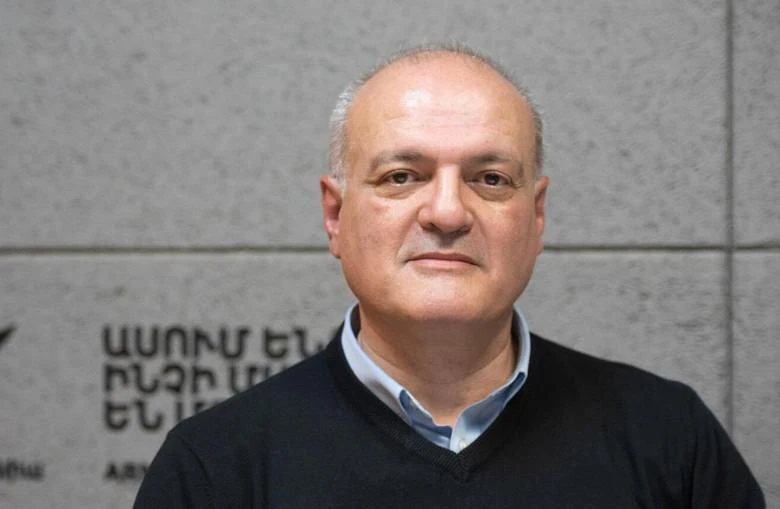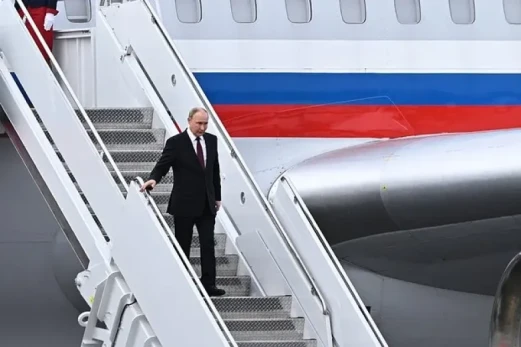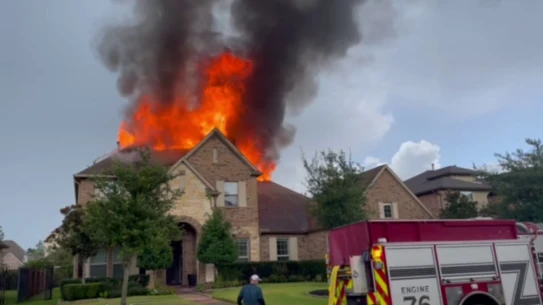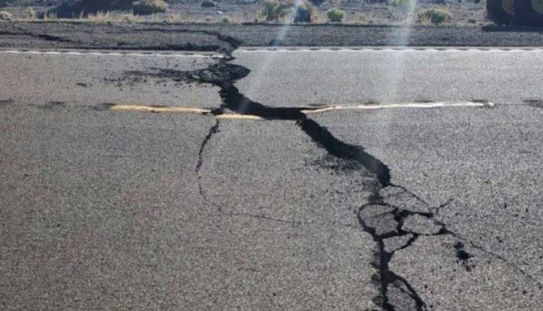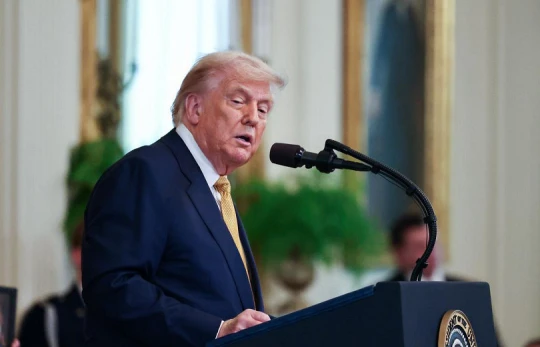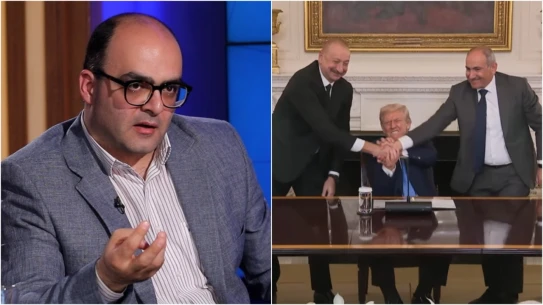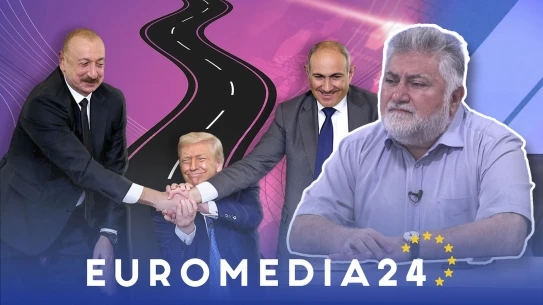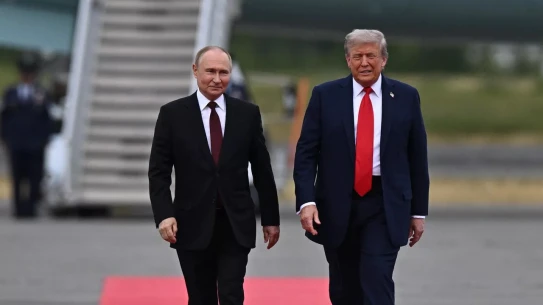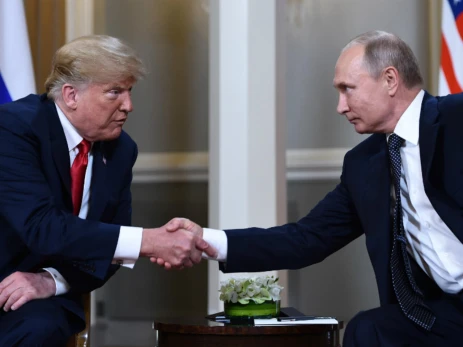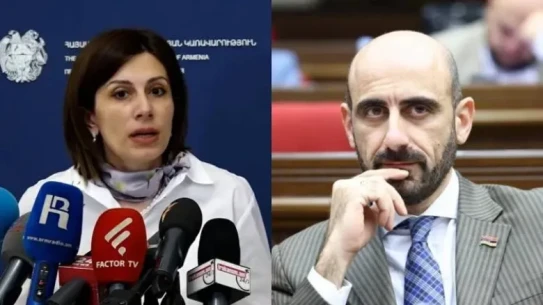The daily newspaper "Fact" writes:
“Over the years, Nikol Pashinyan and his administration, while supposedly pursuing a balanced foreign policy, instead of diversifying Armenia’s foreign policy, that is, supplementing existing relations with major geopolitical and regional centers with other relations and trying to strengthen the country’s security system, which has different components, combining different interests, in essence, they combined foreign political dangers and negative influences,” political scientist Vigen Hakobyan expressed this opinion in an interview with Pasti.
He emphasizes that instead of combining all this constructively, we have got an arena of competition between geopolitical and regional centers in Armenia.
“It has been said many times that Armenia has taken the path of Syriacization, and as a result of Armenian-Azerbaijani, Armenian-Turkish relations, Armenia is, in fact, already facing the option of Cyprusnization of the country. There are Greek and Turkish parts in Cyprus, and now Armenia is facing that danger.
Today’s Armenia sovereign territory can be, say, Azerbaijani Armenia and nominal Armenia. The policy pursued by the Armenian government has not combined and brought closer the interests of geopolitical forces, but Armenia has distanced itself from all geopolitical power centers.
For example, having lost Russia as a strategic ally, it has never been able to have a strategic partnership on the ground with the United States, the EU, or China.
Relations with Iran are at an extremely low level. In the foreign policy arena, Armenia has found itself in the status of an "ant" The previous US administration was at least somewhat interested in the region,in particular, with Armenia. It had positioned itself as an outpost of anti-Russianism.
In this regard, both the United States and the European Union were trying to use Armenia as a blunt instrument. Nikol Pashinyan had a place to play in the foreign policy arena.
After the Trump administration came to power, the picture changed dramatically; it differs sharply from the previous globalist administration in terms of its foreign policy and, most importantly, worldview and ideology.
It is more conservative, the interests of the United States are important to it,” our interlocutor notes. Pashinyan’s visit to Washington became the center of various discussions.
According to Hakobyan, with that visit he aimed to understand what interests the new US administration has in our region and, in particular, in relation to Armenia. “And most importantly, how does it treat Pashinyan and his group, who serve the globalist forces?
The visit was more of an intelligence task, to understand something, to search for new supports. We saw the level of meetings and The US authorities’ personal and interstate attitude towards Nikol Pashinyan and today’s Armenia. It was clear that his visit was “raw”, unprepared.
The pretext for leaving for Washington was to participate in the International Religious Freedom Summit, but he was not even allowed near the table. Or the meeting with US Vice President James Vance, which was recorded only in one photo. There was no video recording at all. Such a thing does not happen.
Any high-level meeting has a protocol. We have seen many such meetings under all previous governments. The most intriguing question was who, after all, was the author of that photo. Was someone passing through the corridor, asked to take a photo, or was Vance’s secretary the one who took the photo, maybe Makunts, if, of course, he was present,or a representative of another country who mediated for at least that picture to be taken. That meeting is not recorded anywhere: in the White House messages, on Vance's personal pages, on the pages of the international press, there is no mention of that meeting.
Only Nikol Pashinyan has that picture and probably the person who took the picture of Pashinyan and Vance on his phone," he adds. The political scientist emphasizes that it is obvious that during the meeting they also tried to organize some high-level, meaningful meeting, but it did not work out.
"Nikol Pashinyan's messages were so uninteresting that it did not affect the mood of high-ranking and decision-making people in the United States, and he was not given serious state attention.
The visit was a failure, it was an attempt to test moods and understand whether the signed charter on strategic partnership would be implemented.
That document was signed five years before the previous administration left, when it was announced that a delegation would come to Armenia in the near future. That charter supposedly he was supposed to get flesh and blood.
But about a month has passed, no one has come here, that paper is now probably in the desk drawer of the White House or the State Department guard. From the point of view of implementation, it seems that it is not on the agenda for the United States.
Thus, he no longer has a master or guarantor in Russia, not only in terms of Armenia's security, but also in terms of his and his family's personal security guarantees.
The current US administration has no interest in getting to know and talking to Nikol Pashinyan at the moment. What did Pashinyan do?
He returned from the United States to Yerevan, organized an unsuccessful show, got on bus number 7, got off bus number 11, and suddenly left for France.
This was not a previously announced visit. He wanted to understand what prospects he had with the EU,because the EU has also changed with the arrival of Trump. As a result of the Russian-Ukrainian war, the EU has weakened as a geopolitical pole, appearing in the background.
The EU's core countries are in the midst of severe economic and political crises. Pashinyan left for France to understand whether someone will be his master.
Moreover, he is interested in whether they will become a real mediator so that Turkey and Erdogan personally can become his "guarantor". On the other hand, he sees that Erdogan does not let him near, hinting that when you solve your issues with Azerbaijan, then I will come, I will put my seal on it.
That is why he is looking for a mediator everywhere to make relations with Erdogan substantial and effective. Pashinyan left for France after Macron had talked with Erdogan, they discussed issues of the Middle East.
I am sure that there was also a conversation about the Caucasus, "says Hakobyan. His According to him, the point of all Pashinyan's visits is to solve the issue of his own geopolitical "powerlessness". "For him, it is of vital importance.
He came to power in 2018, and in 2021 he was retained as a result of a geopolitical consensus. In geopolitical terms, everyone still needed him. Now, after the changes in the US, against the background of more constructive Russian-American relations and the extreme weakness of the EU and problems with the US, he has doubts in this regard.
Both Russia and the EU prefer to talk to him through others." Our interlocutor notes that now a situation has arisen inside our country when Nikol Pashinyan's opponent is not the opposition and even the people, but the state of the country and the difficult prospects expected around the country. "He is in a rather weak position inside the country.
Every day he is busy with some kind of show - posts on social networks, interviews,press conference and so on. He is trying to fill the airwaves in every way and break the atmosphere before the upcoming parliamentary elections.
He understands that the ratings also show that a huge amount of negative energy has accumulated in the country, and in such a situation, the society, supposedly showing passivity, will give a vote of dissatisfaction to the government at the first opportunity.
He understands very well that the votes of the opposition from different strata are not enough for it to win, but his own votes will not allow him to win either. According to polls, if elections are held tomorrow, we will get a fragmented parliament, where no one will have a simple majority on their own.
The problem of forming a coalition arises, in which case Nikol Pashinyan may have very few potential allies. Nikol Pashinyan's public activism today reminds me of spam, when you constantly receive emails from the same place in your email, you don't open it, your email address sends those emails to the spam folder.
Now his speeches, interviews "They have a spam effect. The viewership of live broadcasts has decreased dozens of times. Its factor is no longer able to change the mood in the country," concludes Vigen Hakobyan.
LUSINE ARAKELYAN
















